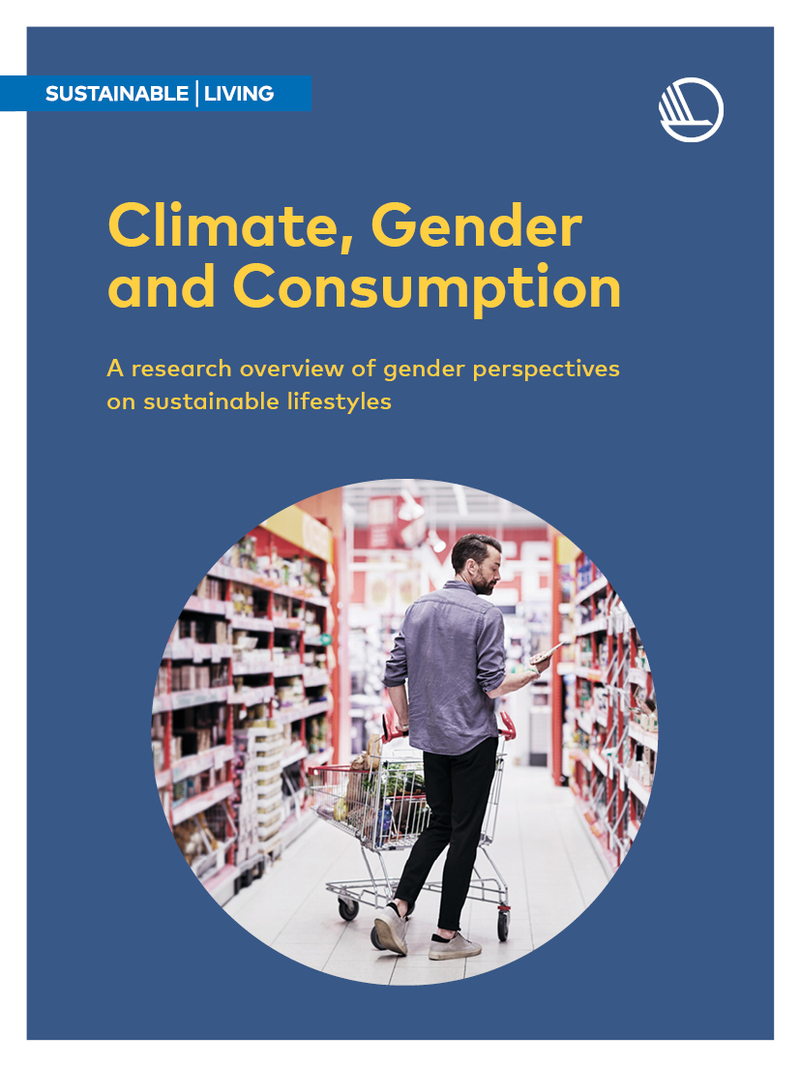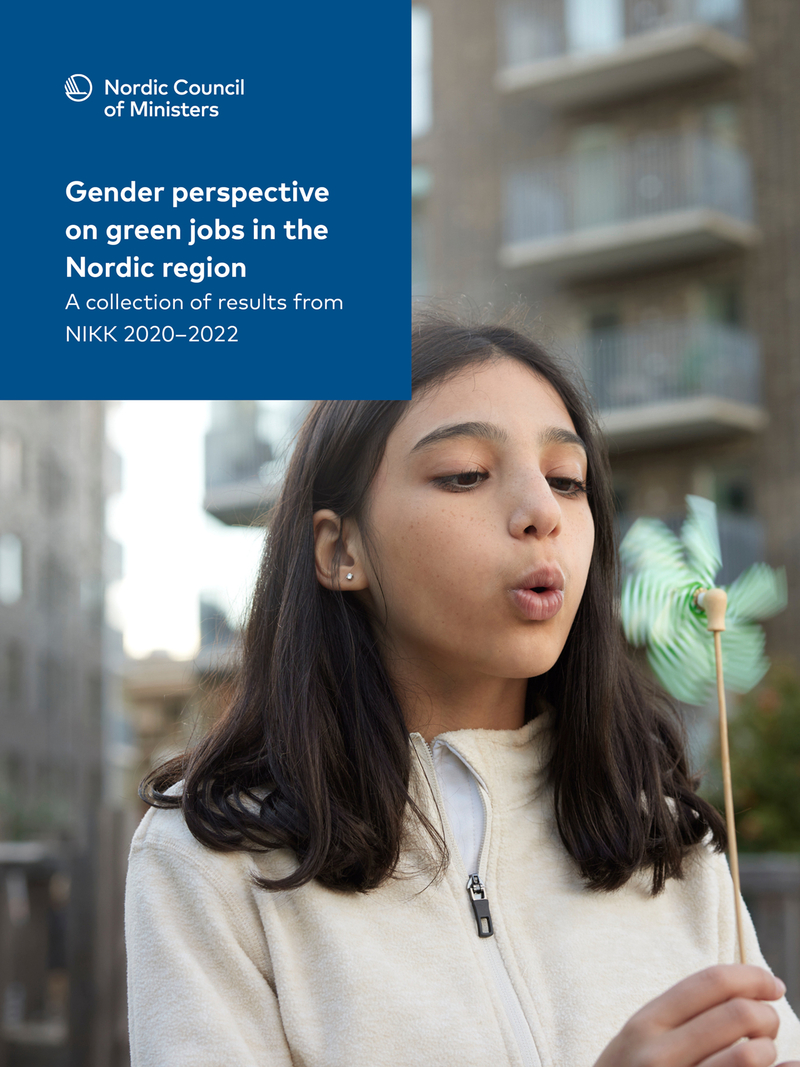
Photo: Yadid Levy/norden.org
Gender and Sustainable Living
The main goals of Sustainability, Lifestyles, and Consumption from a Gender Perspective are to take a closer look at differences in the lifestyles and consumption habits of women and men in the Nordic countries. By analysing sustainability and lifestyle from a gender perspective, the project helps to improve the understanding of and opportunities to promote sustainable consumption. In addition, the project examines gendered and intersectional patterns in young people’s commitment to sustainability, on behalf of the Youth for Sustainable Living project. The project is coordinated by NIKK – Nordic Information on Gender, located at the Swedish Secretariat for Gender Research, University of Gothenburg, Sweden.
“Women are more engaged in climate issues than men - but men have greater influence in the industries where climate issues have to be solved.”
Key outputs
The project has produced a report on sustainability, lifestyles and consumption from a gender perspective. The report, entitled Climate, Gender and Consumption: A Research Overview of Gender Perspectives on Sustainable Lifestyles, summarises the current state of international research in seven different areas: food, housing and energy, clothing and consumer goods, transport, work and time use, culture and tourism, and activism and influence.
The report shows that attitudes and behaviours are influenced by norms and ideals that relate to care and technology, and these areas are often associated with femininity and masculinity, respectively. All in all leading to a greater or lesser impact on the climate. Among other things, the report shows that a caring ideal can be an important key in the green transition.
The report has attracted great interest, and its results have been communicated in Copenhagen, Oslo, Stockholm, Mariehamn and Vilnius, as well as for various government agencies in Sweden. A presentation of the results at the gender equality conference Forum Jämställdhet 2023 was filmed by Swedish public service (Utbildningsradion, UR). News articles have been written about the report in, among others, Dagens Nyheter (SE), Nya Åland (AX), Aktuell Hållbarhet (SE) and Delfi (LT).
The report was based on a systematic literature search conducted with the aid of KvinnSam, a Swedish national library for gender research located at the University Library of the University of Gothenburg. In terms of time, the searches were limited to articles published during the period 2007–2021, a range of fifteen years. They resulted in three hit lists comprising a total of 1388 records, which, through a review process based on preestablished criteria, was narrowed down to 87 peer-reviewed articles in scholarly journals. The included articles underwent a close reading and were classified into seven themes based on the main focus of each study: Food, Housing and energy, Clothing and consumer goods, Transport, Work and time use, Culture and tourism, and Activism and influence. Given the goal of combating climate change, with a specific focus on the environmental impact of consumption and lifestyles, femininities and masculinities are illustrated as both obstacles and opportunities in relation to this goal.
Policy recommendations
Gender, understood as social norms, is often more important than sex as a statistical variable. Individuals oriented towards caregiving – an ideal often associated with femininity, regardless of sex – are more engaged with sustainability and show more sustainable behaviour patterns.
The uneven distribution of unpaid domestic and care work, for which women as a group take a greater share of the responsibility than men as a group, and the normative coding of technology as a male domain, have consequences for the different impacts of individuals on the climate; and consequently for what efforts should be made to reduce this impact.
Traffic planners, vehicle manufacturers, food producers, energy companies, the fashion industry, etc., all have great power to influence the climate impact in their spheres, and thus bear a great responsibility for the green transition. When responsibility is placed on consumers instead, it risks being individualised.
Future directions
Studies of the Nordic countries’ climate policies show that they are having negative consequences for gender equality, and thus also for an effective implementation of the green transition, since initiatives under these policies are largely gender-blind in their design. This largely characterizes the discourse on green jobs. For example, in terms of jobs that are added or lost, the measures are assessed as having an overall positive impact on male-dominated sectors such as the energy, industrial and agricultural sectors, while their main negative impacts are on the female-dominated services sector.
NIKK has made a compilation of previous studies with gender analyses at the intersection between education, work and sustainability, but there is a need to take a systematic approach to research and policy on the green industrial transition. What kind of social visions and problem formulations are the initiatives based on? What synergies and trade-offs are there between gender norms and social structures on the one hand, and the green transition in industry and working life on the other hand?
Resources
- Download the report Climate, Gender and Consumption (norden.org)
- Download Key takeaways from Climate, Gender and Consumption (nikk.no)
- Download the report Gender Perspective on Green Jobs in the Nordic Region (norden.org)

